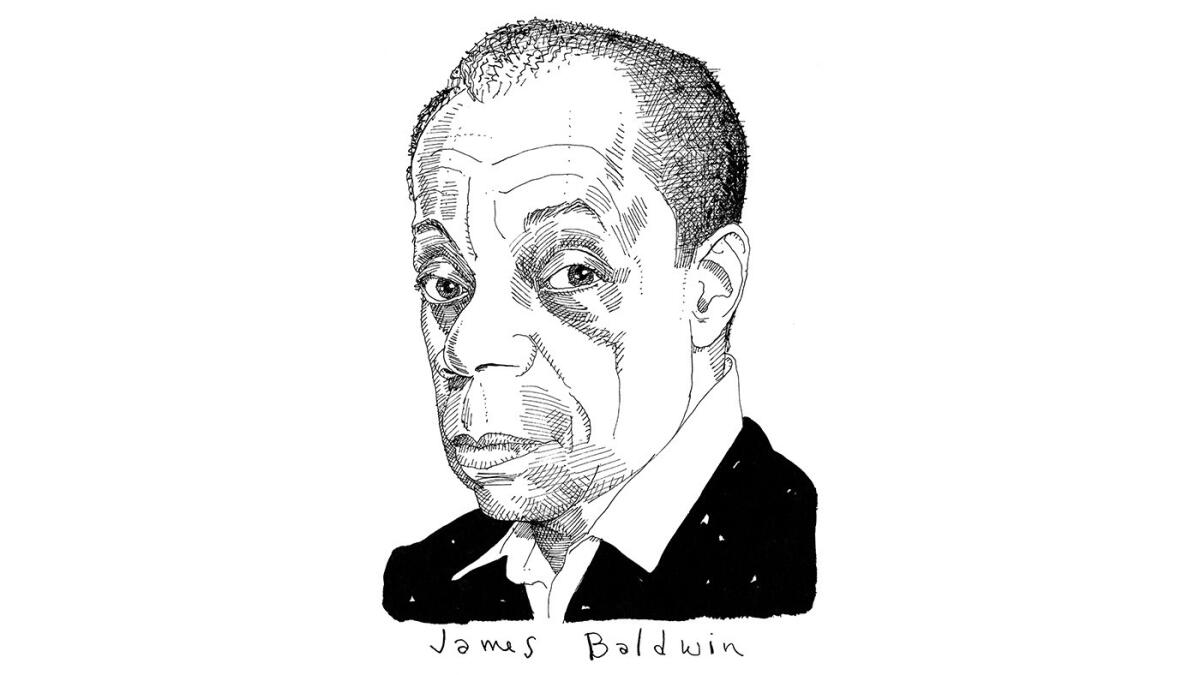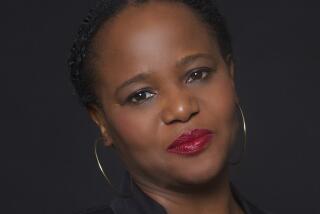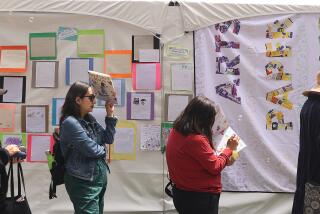Literary Idol: Jose Antonio Vargas on James Baldwin

Literature is a lonely art, but writers keep company with the heroes on their bookshelves. We asked five Festival of Books participants to pay tribute to authors who inspired them.
At age 16, I found out I was what the mainstream media called an “illegal,” an immigrant from the Philippines without proper papers and no authorization to be in the United States — an outlaw; worse, an alien. Around the same time, I realized I was what some of my classmates called a “faggot” — a deviant, some kind of freak.
I am not certain how I would have resolved being an “illegal faggot” in America — feeling worthless and disoriented, unwelcome and unwanted — had I not discovered James Baldwin.
Baldwin was gay and black at a time when America wrestled with the black part and did not know what to do with the gay part. (A contemporary of the Rev. Martin Luther King Jr., some people derided Baldwin as “Martin Luther Queen.”) Yet he resisted being categorized as a “black writer” or a “homosexual writer.” He was an American writer and a quintessential one at that, unpacking uncomfortable truths and deconstructing myths, never settling for a simplistic, black-or-white point of view. Everything was gray. The personal was always political.
FULL COVERAGE: FESTIVAL OF BOOKS
The piercing honesty of his prose in books such as “Giovanni’s Room” and “Another Country” translated clearly and provocatively in interviews and speeches. On being gay, Baldwin said: “Everybody’s journey is individual. If you fall in love with a boy, you fall in love with a boy. The fact that many Americans consider it a disease says more about them than it does about homosexuality.”
As a newcomer to America who was neither white nor black — I look Asian but my name screams Latino — it first came as a shock, and later a source of liberation, to read: “The truth is, no white American is sure he’s white, and every American Negro visibly is no longer an African.” Through his novels, short stories, plays, poems, and especially his essays, arguably the most penetrating essays on the complexity and contradictions of the American identity ever published, he raised my consciousness and created a space for me and countless others to define ourselves and resist being “othered.”
When I decided to take the biggest risk of my life, going against the advice of lawyers and writing an essay for the New York Times Magazine on my life as an undocumented immigrant, I kept re-reading passages from Baldwin’s “Notes of a Native Son” and “Nobody Knows My Name.” Those seminal books grounded me. When “Documented,” a film I was producing and directing, turned intensely personal — I decided to send a film crew to the Philippines to film my mother, whom I had not seen in 18 years — it was Baldwin’s words that guided and dared me through the process:
“Not everything that is faced can be changed, but nothing can be changed until it is faced.” Baldwin allowed me to face myself.
Vargas will appear at the Festival of Books on April 18. He is the founder and editor of #EmergingUS, a new venture with The Times that will be a digital magazine on race, immigration, and identity in a multicultural America.
MORE FROM FESTIVAL OF BOOKS:
Times’ celebration of the written word opens its 20th chapter
Photos: Los Angeles Times Festival of Books: A look back
Interactive game: How to be a writer
More to Read
Sign up for our Book Club newsletter
Get the latest news, events and more from the Los Angeles Times Book Club, and help us get L.A. reading and talking.
You may occasionally receive promotional content from the Los Angeles Times.







